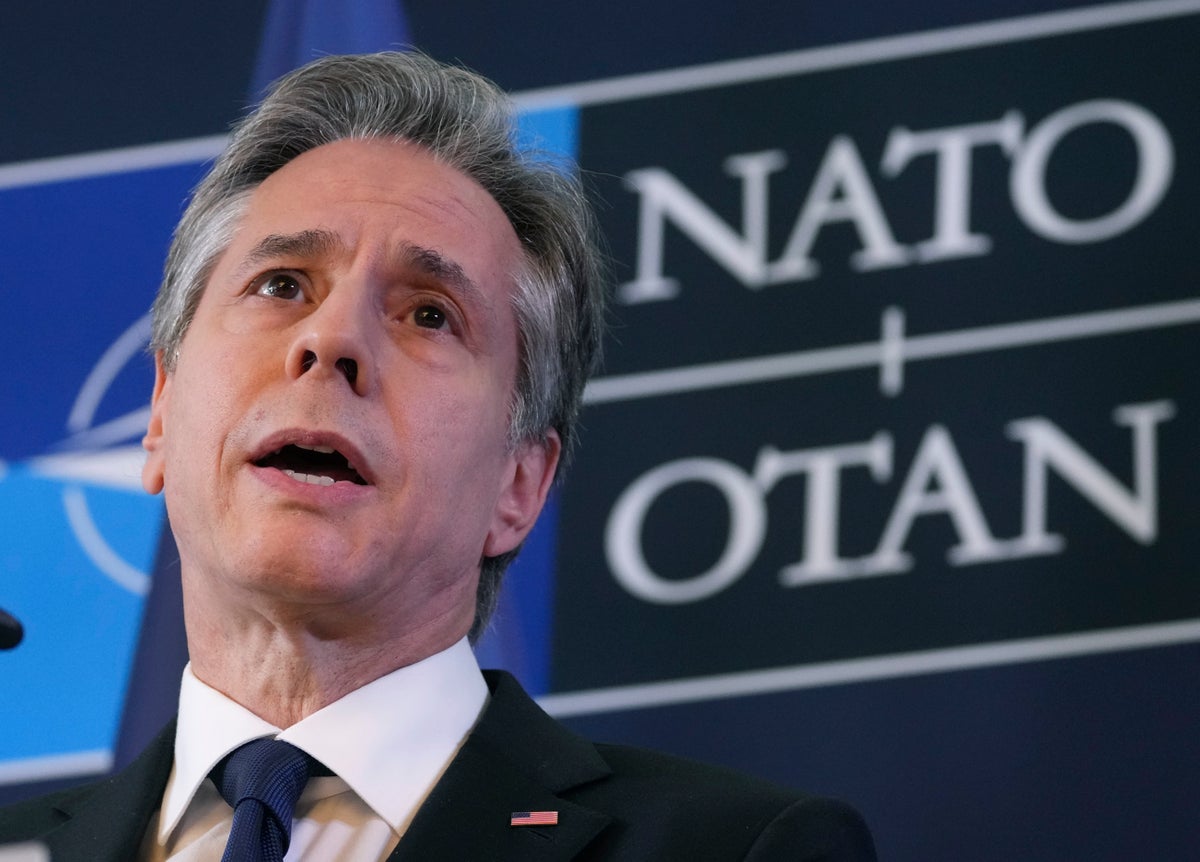
Secretary of State Antony Blinken is turning his attention to Ukraine, NATO and the Western Balkans after weeks of intense focus on Israel’s war against Hamas in Gaza.
Blinken has spent much of the last month-and-a-half deeply engaged on the Gaza crisis, making two trips to the Middle East. Now, amid signs that a cease-fire agreement between Israel and Hamas due to expire on Monday may be extended, Blinken is departing for Brussels for a NATO foreign ministers meeting.
In Brussels, the alliance will reaffirm its support for Ukraine’s defense against Russia’s invasion, explore ways of easing tensions between Kosovo and Serbia and look at preparations for NATO's 75th anniversary next year.
The two-day session on Tuesday and Wednesday will include the first foreign minister-level meeting of the NATO-Ukraine Council, a body created by alliance leaders at their last summit to improve cooperation and coordination and help prepare Kyiv for eventual membership.
“Allies will continue to support Ukraine’s self-defense until Russia stops its war of aggression,” said Jim O’Brien, the top U.S. diplomat for Europe.
The ministers will also address the situation in the Western Balkans where there are calls for NATO to increase its military presence amid concerns that hostility between Serbia and Kosovo could escalate to outright conflict.
Violence between the two has broken out twice in recent months, and Western countries fear that Russia could try to foment trouble in the Balkans to avert attention from the war in Ukraine.
Last week, Albania's prime minister urged NATO to further boost its military forces in Kosovo and secure the country’s borders with Serbia, warning that recent ethnic violence in Kosovo could potentially trigger a wider Balkan conflict. NATO has already strengthened its military presence in Kosovo — established after the 1999 bombing campaign against Serbia — with about 1,000 additional troops and heavier weaponry, bringing its deployment there to about 4,500 troops.
Blinken will underscore U.S. and NATO support for democracy and regional stability in the region, including a commitment to back all countries’ aspirations to join the European Union, O’Brien said.
Serbia doesn’t recognize Kosovo’s formal declaration of independence in 2008. Both countries want to join the European Union, which is mediating a dialogue between the former foes. Brussels has warned both that refusal to compromise jeopardizes their chances of joining the bloc.
In addition to Ukraine and the Western Balkans, the ministers will also discuss plans for the alliance's 75th anniversary summit to be held in Washington in July 2024 at which allies will celebrate NATO's founding and highlight what leaders call the most successful military alliance in history.







